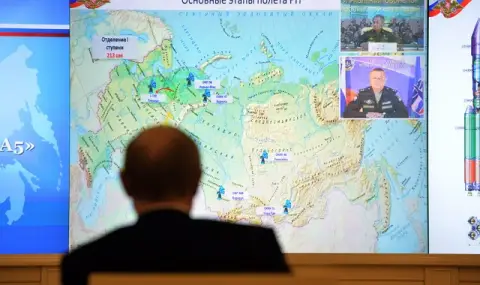A month after Ukraine invaded Russian territory, one thing is clear: the Kremlin is ready to continue the war of attrition that Vladimir Putin still believes he can win, writes for the Financial Times Alexander Gabuev, director of The Carnegie Center for Russia and Eurasia in Berlin.
Hopes that the conflict could be ended quickly through some form of military or economic settlement have so far been dashed. Now, what started as Putin's war is increasingly becoming Russia's war, strengthening the Kremlin's ability to ignore the costs.
It goes without saying that the failure at Kursk is embarrassing for Putin: after all, for the first time since World War II, a nuclear-armed Russia has been attacked - and by a non-nuclear state. But the humiliation remains unlikely to cause political problems for Putin at home, as senior officials in Ukraine and the West have suggested.
The deep reserves of social inertia, apathy, and forced atomization of Russian society were the sources of Putin's power long before the full-scale invasion of Ukraine in 2022. And ever since, the Kremlin has carefully cultivated these pillars of the regime—while simultaneously strengthening the apparatus of repression and showering population with money. Moreover, in border regions that have witnessed Ukrainian retaliation, support for the Russian military effort is 10-15% higher than the national average of around 60%.
These are the same regions where before the war thousands of people visited their Ukrainian relatives and friends on the other side of the border. The rise in pro-war sentiment does not necessarily lead to an increase in military recruits, but it makes it easier for the government to convince the Russian people to tolerate an indefinite war with their neighbors. That is why Putin is in no hurry to repel the invader at any cost. This year, his military focus is on eastern Ukraine, where Russian troops are breaking through Ukrainian defenses. For now, it is enough for the Kremlin to patch up the breach in the Kursk region by unsystematically attracting military units from all over Russia and at the same time continuing to use the most combat-ready fighters in the Donbass.
The Russian president feels that he must advance as much as possible before winter sets in, and that he can afford to deal with Kursk later. This helps explain why the Kremlin, despite its concerns, has been slow to use some of the most powerful tools at its disposal, including tactical nuclear weapons. Ukrainian President Volodymyr Zelensky, understandably, wants to present the invasion of Russia as definitive proof that the Kremlin can be brought down by force — and that the West need not fear escalation.
"The whole naive, illusory concept of the so-called "red lines regarding Russia that dominated the assessment of the war by some partners have broken down," he said last month. The truth is that for every setback in this war, Putin manages to strike back and extract a price from Ukrainians - and increasingly from Kiev's Western allies.
Over the past two and a half years, he has carried out a large-scale mobilization, launched relentless airstrikes against Ukrainian infrastructure and launched a campaign of sabotage in the west. In response to the Kursk invasion, the Kremlin ordered a massive strike against Ukraine's electricity grid and has continued to terrorize the country nightly ever since.
This war will have more painful twists for Putin as Kiev seeks Western approval to use NATO-supplied long-range missiles to strike deep into Russia, as well as develop its own missile program with Western help.< br />
But the Kremlin is not without tools to respond. The most important decision now is whether Putin will attempt a new mobilization, given that Russian troop numbers have been reduced. This manpower shortage can be overcome through the electronic call-up system, which was introduced last year and will be operational by November. After the panic and flight that followed the partial mobilization in 2022, the new system aims to reduce public anxiety and make it impossible for conscripts to flee abroad.
Given the determination to continue fighting in both Moscow and Kiev, there is unlikely to be a shortcut to a quick victory for either side. As the prospects for meaningful diplomacy diminish in the coming months, the war will drag on. It remains unpredictable and increasingly dangerous. Western leaders must be ready to support Ukraine through a long and painful period.
Ukrainian Army Advances in Kursk Oblast, But Vladimir Putin Still Believes He Can Win the War
Now what started as Putin's war is increasingly becoming Russia's war, strengthening the Kremlin's ability to ignore the costs
Sep 5, 2024 22:29 411
